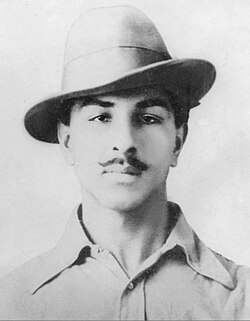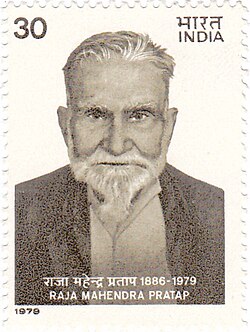Anti-colonialists

List of notable Jats who were Indian independence activists or freedom fighters

- Baba Gurdit Singh, [1] leader of the Komagata Maru incident
- Bhagat Singh, [2] Indian socialist revolutionary who was executed by the British colonialists in 1931
- Gurbaksh Singh Dhillon, [3] he was as a close associate of Subhas Chandra Bose and played a key role in INA military operations against British forces during World War II
- Kartar Singh Sarabha, [4] Indian freedom fighter
- Nahar Singh, [5] ruler of Ballabgarh who fought against the East India Company in the Indian Rebellion of 1857
- Rai Ahmad Khan Kharal, freedom fighter in the Indian Rebellion of 1857 [6]
- Raja Mahendra Pratap Singh, [7] Indian freedom fighter, president of the Provisional Government of India in Kabul
- Sah Mal, [8] rebel who fought against the British in Indian Rebellion of 1857
- Sardar Ajit Singh, [9] revolutionary and uncle of Bhagat Singh, best known for leading the Pagri Sambhal Jatta movement against British agrarian laws and for his lifelong struggle in exile against colonial rule.
- Sohan Singh Bhakna, [10] founding president of the Ghadar party
- Teja Singh Sutantar, [11] freedom fighter and a member of Ghadar Party



































